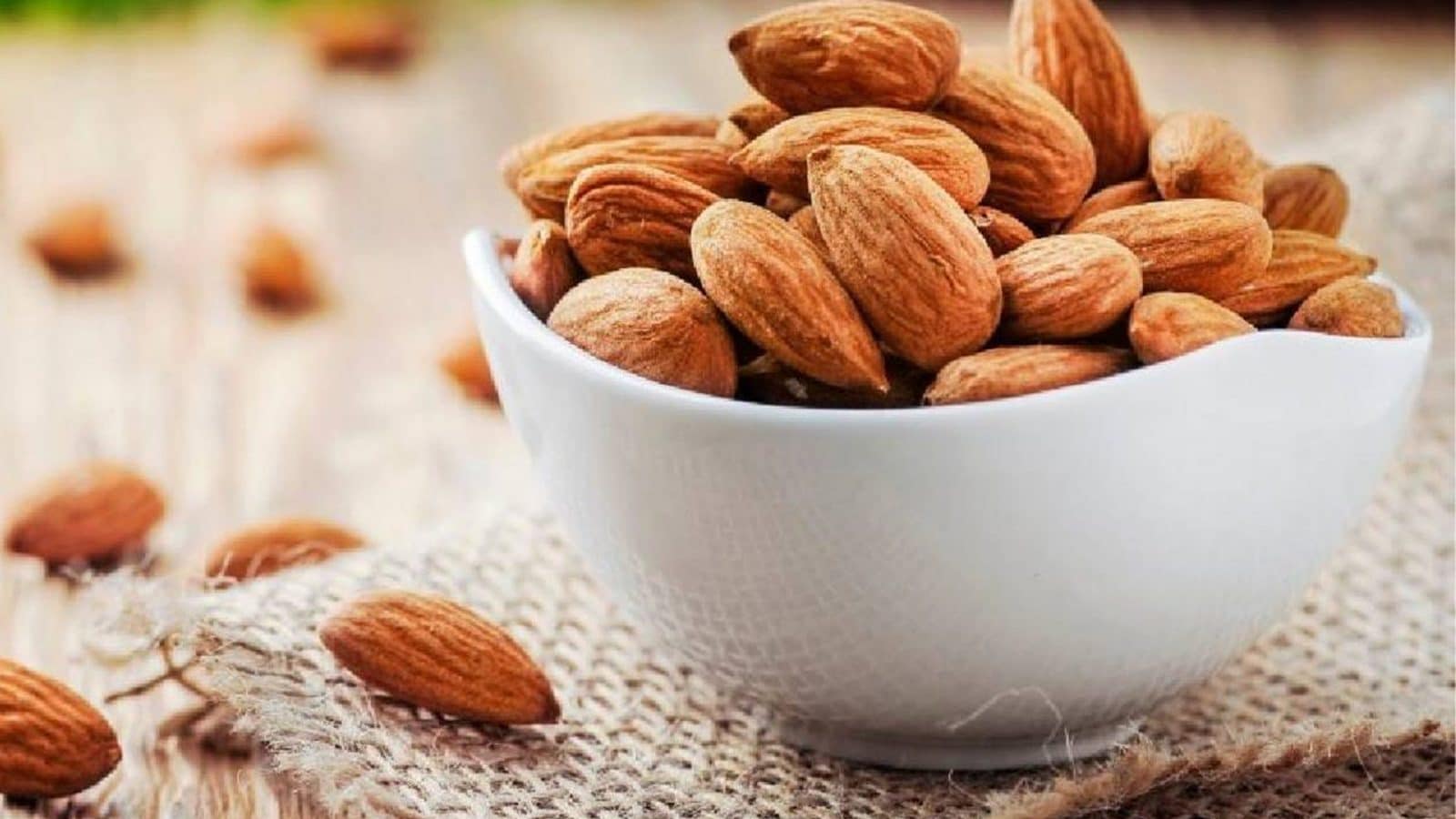Study Says Eating Almonds Daily Could Improve Diabetes Risk Factors
A new study reported that eating almonds daily for 12 weeks reduced insulin resistance, improved pancreatic function, and helped control blood glucose levels. What’s more, the almond treatment group achieved significant reductions in body weight, body mass index (BMI), and waist circumference over the intervention period and lowered their total cholesterol.
The challenges of excess body weight and diabetes are seen around the world, and the two conditions often go hand in hand. Therefore, a single intervention addressing both, like the addition of almonds as seen in this study, may make a profound difference to improve health.
This study was led by Viswanathan Mohan, MD, PhD, DSc, president and chief of diabetes research at Madras Diabetes Research Foundation in Chennai, India, and included collaborators R. M. Anjana, MD, PhD, vice president at Madras Diabetes Research Foundation; Richard Mattes, PhD, MPH, RD, distinguished professor of nutrition and public health at Purdue University; Jordi Salas, MD, PhD, professor of nutrition and bromatology (food science) at the Universitat Rovira i Virgili; and Walter Willett, MD, DrPH, professor of epidemiology and nutrition at Harvard University, among several others. Researchers assessed the effects of 43 g (1.5 ounces) of raw almonds eaten daily for 12 weeks on insulin sensitivity, insulin resistance, and serum lipid markers among Asian Indian adults with overweight and obesity living in Chennai City, India.
Also Read: Top 9 Cleaning Solutions for Indian Households: Simplify Your Cleaning Routine Today
“Our almond consumers had improvements to both body weight and blood sugar,” said Dr. Mohan. “Obesity is a health problem seen around the world, and we know obesity raises the risk of chronic diseases, like type 2 diabetes. We also know this is a complex problem, tightly interwoven with diabetes, and we think we’ve identified a rather simple solution. It turns out, asking people to enjoy almonds instead of other snacks can help them manage weight and reduce the burden of diabetes.”
Gayathri Rajagopal, PhD scholar, University of Madras, first author on the study’s paper, is equally excited about improvements in pancreatic health seen in the study. “Our almond eaters demonstrated enhanced function of their beta cells, which are the cells in the pancreas that make insulin. This is substantial for people with prediabetes and suggests the potential for regular almond consumption to delay onset of diabetes. Besides that, we know almonds increase satiety making them a healthy snack for people predisposed to type 2 diabetes.”
Researchers saw heart-health benefits, too. People participating in the almond intervention had better levels of total cholesterol and triglycerides—both of which are very important to manage with obesity and diabetes. Nuts like almonds are a healthy dietary component that could reduce the risk of cardiovascular disease as well.
“Our team counsels’ patients to include a variety of foods in their diets, especially plant foods, and reduce deep-fried snacks,” said Dr. Anjana. “Almonds provide 6 grams of plant protein per 1 ounce (28 grams) serving. Almonds’ favorable fatty acid profile and high vitamin E content correspond to the improvements in cholesterol and triglycerides we saw in the study. Furthermore, the improvements in body weight, pancreatic function, reduction in insulin resistance, and better blood sugar suggest that almonds are a boon to cardiometabolic health.”
Study Design
Employing a randomized controlled design, researchers studied 352 male and female Asian Indian participants (intervention = 174; control = 178). Age range was 25 to 65 years and BMI ranged from 23 kg/m2 and up. Researchers used BMI guidelines from the World Health Organization – Western Pacific Region stating that > 23 kg/m2 corresponds to overweight and > 25 kg/m2 to obese. Participants had central obesity, dyslipidemia (i.e., imbalance of blood lipids, such as cholesterol), family history of diabetes, normal blood pressure as well as hypertension, and they routinely consumed mid-morning snacks.
Measures included body weight, blood pressure, glucose, insulin, cholesterol, beta cell function (i.e., the cells in the pancreas that make insulin), and others. A subsample of 126 participants was asked to wear a continuous glucose monitor for 14 consecutive days.
Results
Researchers found that participants in the almond treatment group had improvement in their beta cell function—those cells that make insulin—reduced insulin resistance and lowered total cholesterol. In addition, these participants had significant reductions in body weight, BMI, waist circumference, glucose, and triglycerides over 12 weeks.
In addition to these cardiometabolic benefits, the almond intervention participants consumed 13% fewer carbohydrates, increased calories from fat, and experienced increased intakes of protein, monounsaturated fat, and dietary fiber. For the subsample wearing the continuous glucose monitors, the almond intervention participants had better glycemic responses compared to the control participants.
Like all studies, there were some limitations. Findings in this study may only generalize to Asian Indian adults with overweight and obesity.
A one-ounce (28 g) serving of almonds provides 4 g (14% DV) fiber and 15 essential nutrients, including: 77 mg (20% DV) magnesium, 210 mg (4% DV) potassium, and 7.27 mg (50% DV) Vitamin E, making them a perfect nutrient-rich snack to help manage diabetes and promote heart health.
Read all the Latest Lifestyle News here
For all the latest lifestyle News Click Here

